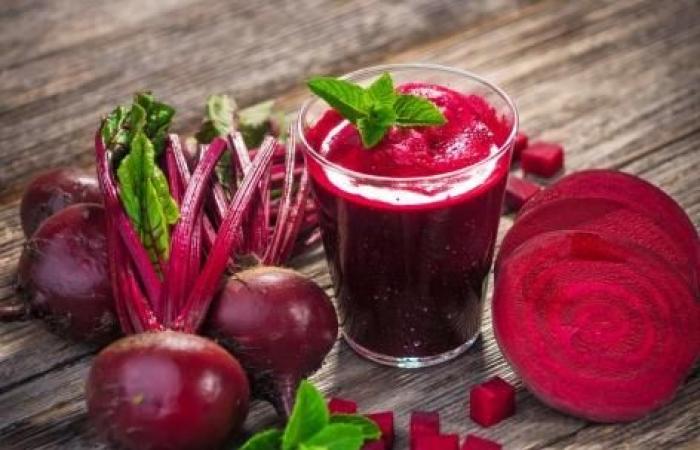THE ESSENTIAL
- Drinking beetroot juice before a workout could improve the benefits of the session in postmenopausal women, according to a new study.
- Postmenopausal women who drank beetroot juice increased their walking distance in the research.
- They also showed better heart rate recovery.
At menopause, the benefits of physical exercise on muscular and cardiovascular health are reduced. So that the efforts made are not in vain, you should drink beet juice before your sports session.
This is confirmed by a study by a team from Indiana University published in the journal American Journal of Physiology-Regulatory, Integrative and Comparative Physiology, November 6, 2024.
Menopause and exercise: a reduction in nitric oxide to blame?
The body’s reduced response to exercise could be linked to reduced availability of nitric oxide. However, beets are a vegetable rich in nitrates, a compound which is converted into nitric oxide during physical activity. The researchers therefore wondered whether consuming the juice of this vegetable could improve the results of exercise on the health of women who have been menopausal for at least six years.
In this study, 24 postmenopausal volunteers were required to complete a supervised exercise training program three times a week for eight weeks. Half of these women were asked to drink half a glass of beet juice (140 milliliters) two to three hours before each session. The other group did not have any specific dietary recommendations.
The physical condition of all participants was assessed, including a six-minute walk test and a maximum knee extension strength test.
Physical strength: greater benefits with beet juice
According to the analyzes carried out, women who took beetroot juice before exercise recorded greater improvements in several aspects of physical function, such as aerobic capacity and recovery. Among other things, they increased their distance during the six-minute 40-meter walk test. For comparison, the group who had not drunk anything only showed an increase in their performance of eight meters.
The researchers also observed among consumers of beet juice an increase in aerobic capacity of 1.5 milliliters per kilogram per minute, compared to only 0.3 milliliters per kilogram per minute for the others. Heart rate recovery also improved, with a decrease of 10 beats per minute after the six-minute walk test for the group that drank the drink. The decline was only one beat per minute for the control group.
For researchers, these results provide “convincing preliminary evidence” that consuming beetroot juice before exercise could be particularly beneficial for postmenopausal women. They add that the drink could offer a new non-pharmacological option for women to maintain their mobility and quality of life.






